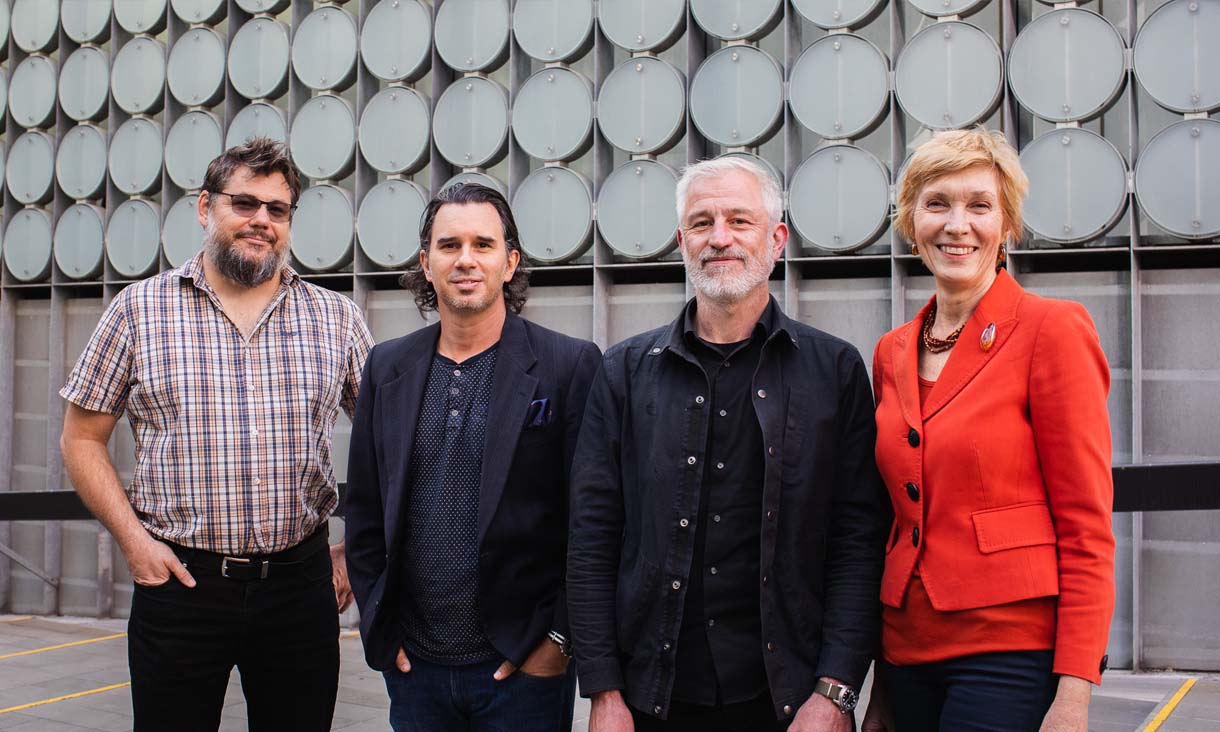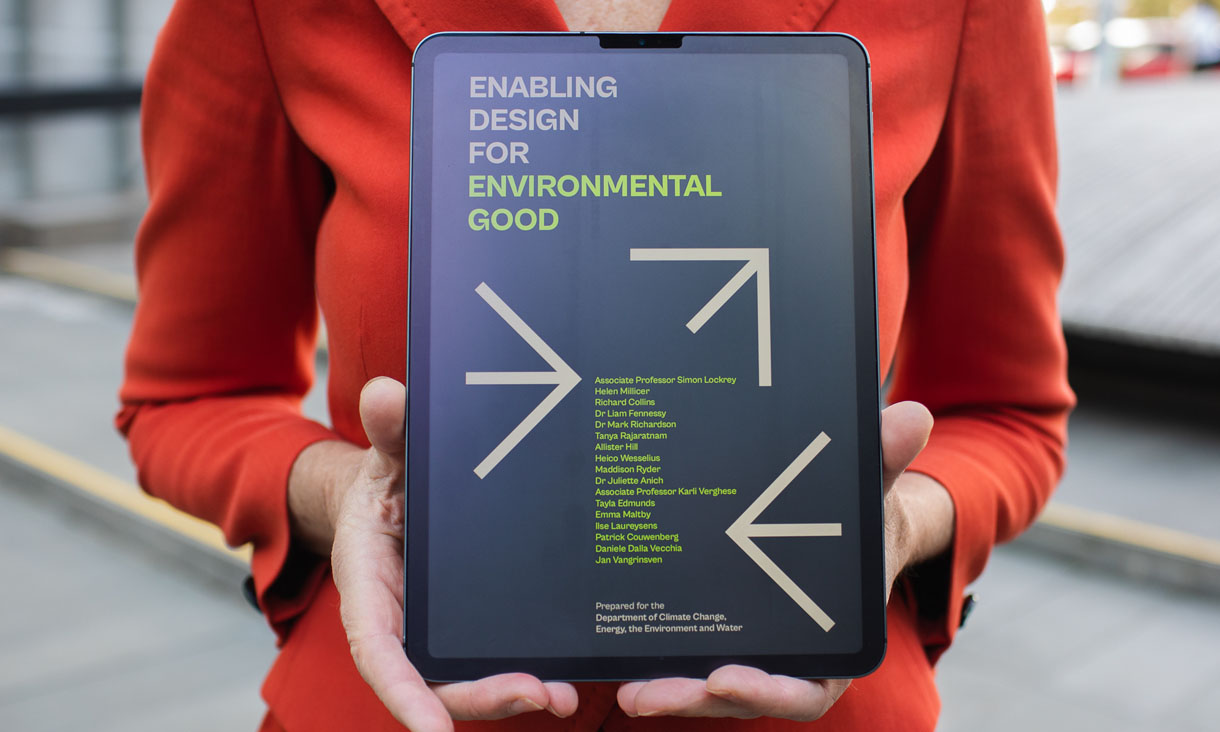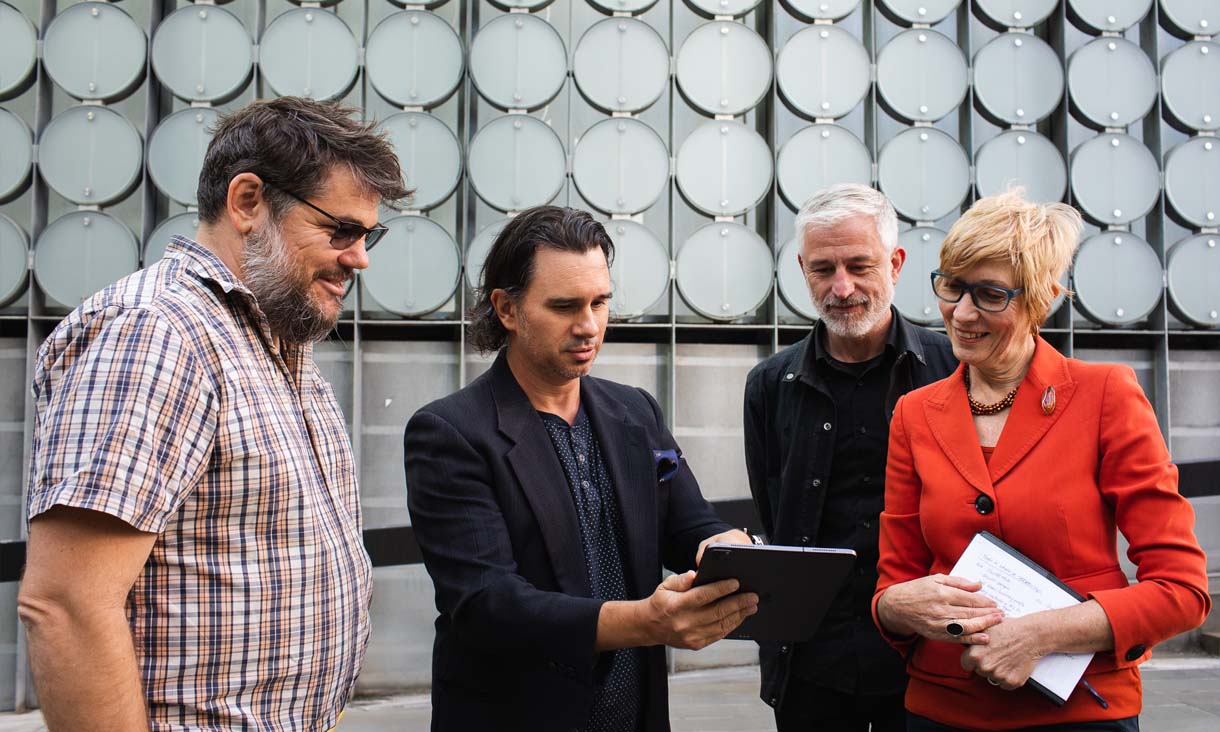New reports unveil a critical roadmap to transition Australia to a circular economy through design to help businesses and industry make real environmental change.
Commissioned by the Department of Climate Change, Energy, the Environment and Water, the 'Enabling Design for Environmental Good' reports were produced by experts in eco-design and sustainability from across research and industry to inform a coordinated approach by government and industry to transition Australia to a circular economy.
The recommendations highlight opportunities for Australia to use design to improve the sustainability of production processes, materials, products and business models across local industries, as well as the risks of not doing so.
Australia has a goal to transition to a circular economy by 2030, but RMIT project lead and Associate Professor Simon Lockrey said Australia was still in the early stages of its circular economy journey. Countries such as The Netherlands, who are seven years into their transition, are already making progress within fashion, water and technology.
"We're already seeing the impacts of climate change playing out now," said Lockrey from the School of Design.
"It's not just impacting the environment, it's also impacting the global supply chain, causing delays and driving up costs."
That is why the research team is calling for a central body run out of the federal government to coordinate Australia's transition to a circular economy through design.
"This call for a new and coordinated approach to designing sustainable products and industries is not a nice-to-have, but an urgent necessity," Lockrey said.
"We need an approach that ties together the interests of the federal, state and local governments, which will help businesses and industry work towards a common goal."
 L-R: RMIT's Allister Hill, Associate Professor Simon Lockrey and Dr Liam Fennessy with Helen Millicer from One Planet Consulting. Credit: RMIT University
L-R: RMIT's Allister Hill, Associate Professor Simon Lockrey and Dr Liam Fennessy with Helen Millicer from One Planet Consulting. Credit: RMIT University
Collaboration for real change
RMIT researchers led a consortium of experts with consultants from Arcadis Australia and One Planet Consulting to craft 10 recommendations to overhaul products made locally or allowed to be sold in Australia, and how we handle them during their lifespan, for four priority sectors - textiles, plastics, buildings and electronic goods.
"Australian industry sectors will become increasingly uncompetitive unless these recommended actions are taken to align with leading nations on better product design, sale and circularity," said Helen Millicer, Churchill Fellow and Director of One Planet Consulting.
"Likewise, households and businesses will pay ever higher costs, and our environment too, if we continue our sad, excessive 'throw-away' systems of highly refined textiles, electronic goods, building products and plastics."
In line with this, major local companies, including Country Road Group and Breville, and design peak bodies Good Design Australia and Design Institute of Australia, helped co-design the recommendations to ensure they were feasible and impactful to their industries.
 The reports were produced by experts in eco-design and sustainability from across research and industry to inform a coordinated approach to transition Australia to a circular economy. Credit: RMIT University
The reports were produced by experts in eco-design and sustainability from across research and industry to inform a coordinated approach to transition Australia to a circular economy. Credit: RMIT University
The importance of design
Arcadis Australia project lead Richard Collins said design was crucial to ensure materials, products and systems were environmentally and economically sustainable from the start of their lifecycle.
"Design contributes to up to 70% of the environmental impacts of a product's lifecycle," he said
"For instance, before a building begins construction, design decisions made on what sort of materials are used, how it's built, where the building will be positioned, and subsequently how it performs over its life, will determine the environmental and financial impact of the building."
"If poor choices are made, the building will not just have negative environmental impacts, but it will also cost more to run, maintain or upgrade. But this is much bigger than just construction - the same design principles need to be applied across textiles, electronics, plastics and more."
 Design is crucial to ensure materials, products and systems were environmentally and economically sustainable from the start of their lifecycle. Credit: RMIT University
Design is crucial to ensure materials, products and systems were environmentally and economically sustainable from the start of their lifecycle. Credit: RMIT University
The reports emphasise the onus of design does not sit solely with designers as decision makers in management, marketing and supply chain have the final say in enabling and commissioning design.
"We need to educate people in these positions, as well as future decision makers, to understand the environmental and economic benefits design can have on their business or sector," Lockrey said.
The activation of a rejuvenated repair industry will be important as consumers are becoming more knowledgeable about how their buying habits impact the environment.
"People do not want to repeatedly buy the same item when it wears out, but there are few options for repair, which makes it expensive."
"If more businesses offered repair solutions, we could scale the cost of repairs to make it more affordable."
Join the research team on Friday 24 March for the online launch of the reports. Register here.
Read the reports on the Department of Climate Change, Energy, the Environment and Water website.






